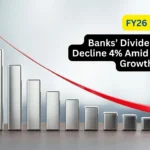New Delhi: The International Finance Corporation (IFC) is poised to achieve substantial gains from its planned divestment in Tata Capital’s upcoming $2 billion initial public offering (IPO). This marks a significant moment as IFC prepares to offload approximately 3.58 crore shares. The IPO is part of a broader strategy aimed at enhancing Tata Capital’s lending capacity while adhering to regulations set by the Reserve Bank of India (RBI).
IFC and Tata Capital’s Strategic Partnership
The International Finance Corporation (IFC), a member of the World Bank Group, has had a fruitful partnership with Tata Capital since 2011. Originally established to finance renewable and sustainable infrastructure projects, Tata Cleantech Capital Ltd (TCCL)—a joint venture between these two—has evolved significantly in the past decade. Back then, clean energy initiatives in India were largely dependent on subsidies, but the landscape has dramatically transformed.
Through TCCL, the ex-partner has financed over 500 renewable projects spread across solar, wind, biomass, small hydro, water treatment, and electric mobility. This breadth of investment showcases a commitment to greening India’s economy and its impact is palpable. A notable figure from TCCL’s operations reveals that the company sanctioned more than 22,400 MW of clean energy capacity, underscoring the importance of its role in the evolving Indian economy.
Upcoming IPO: Key Financials and Expectations
Tata Capital plans to launch its $2 billion IPO in the first half of October following an extension granted by the RBI to list its shares on stock exchanges. The IPO will consist of a fresh issue of up to 21 crore shares and an offer for sale (OFS) of up to 26.58 crore shares, with a portion allocated for both Tata Sons and the IFC.
IFC’s current holding stands at 7.16 crore shares, representing around 1.8% of Tata Capital’s total shares after the merger of TCCL with Tata Capital. As detailed in the draft red herring prospectus (DRHP), IFC plans to offload 3.58 crore shares during the IPO. Historically, the entry point for this stake was approximately Rs 25 per share, resulting in an initial investment around Rs 179 crore. Given the recent rights issue price of Rs 343, this investment is now valued at nearly Rs 2,458 crore, yielding a staggering notional profit of roughly Rs 2,278 crore—an impressive 13-fold return.
| Details | Value |
|---|---|
| IPO Size | USD 2 billion (Rs 17,000 crore) |
| Shares Offered by IFC | 3.58 crore shares |
| IFC’s Entry Price | Rs 25/share |
| Rights Issue Price | Rs 343/share |
| Current Valuation of IFC’s Stake | Approx. Rs 2,458 crore |
| Profit from Investment | Approx. Rs 2,278 crore |
Projected Growth and Economic Implications
The proceeds from this IPO are earmarked for bolstering Tier-I capital, providing a springboard for accelerated lending growth. If successful, this IPO is set to become one of the largest public offerings in India’s financial sector, enhancing Tata Capital’s visibility and positioning within the competitive landscape.
This momentous occasion aligns with the RBI’s mandates for upper-layer non-banking finance companies (NBFCs) like Tata Capital, which must list on stock exchanges within three years of receiving their designation. In this case, Tata Capital was reclassified as an upper-layer NBFC in September 2022.
The implications for the Indian economy are substantial. The financial sector’s growth is critical in driving infrastructure development and fostering renewable energy initiatives which will contribute to India’s commitment to sustainable development.
The Broader Impact of the IPO
The financial ecosystem, particularly in the banking sector, is closely watching Tata Capital’s impending IPO. As banks and financial institutions are under increasing pressure to digitize and expand, moves like these provide a significant indicator of market sentiment and confidence in future investments.
The IPO also represents an era of increased transparency and public accountability in the financial sector, crucial for fostering investor confidence. Notably, the investment landscape is expected to evolve, with more focus on sustainable practices. International organizations like the IMF and World Bank highlight the importance of such transitions to ensure that energy consumption aligns with global sustainability goals.
In conclusion, the upcoming IPO not only serves as a lucrative opportunity for the International Finance Corporation but also stands as a testament to the growth of the renewable sector in India. The participation of a global entity like IFC signals confidence in Tata Capital’s vision and the future trajectory of the Indian economy. As more investments pour in, the ripple effect will undoubtedly support the larger goals of climate responsibility and energy independence.
Bankerpedia’s Insight 💡
The upcoming IPO of Tata Capital, anticipated to be India’s largest public offering in the financial sector, signals a transformative moment for banking and finance. With IFC exiting its stake profitably, this underscores investor confidence in India’s cleantech future, furthering growth in sustainable finance. As Tata Capital aims to boost lending through fresh capital, the initiative could enhance the accessibility of financial services, particularly in renewable sectors. For investors, this could be a prime opportunity to engage with emerging fintech solutions, while consumers may benefit from increased lending options.
What Does This Mean for Me? 🤔
- Salaried Person → Possible investment opportunity in Tata Capital IPO.
- Business Owner → Potential for increased investment opportunities and financing options.
- Student → Increased investment opportunities in sustainable finance initiatives.
- Self-employed → Increased financing options for renewable projects availability.
- Homemaker → Increased access to sustainable finance opportunities for families.
- Retiree / Senior Citizen → Potential for increased investment returns in sustainable energy.
- Job Seeker → Increased job opportunities in renewable finance sector.
- Farmer / Rural Citizen → Increased access to financing for sustainable agriculture projects.
Research References 📚
- economictimes.indiatimes.com
- RBI
- SEBI
- Ministry of Finance
- NABARD
- Department of Financial Services (DFS)
- IMF
- World Bank
Loved our Research? ❤️
Bankerpedia turns financial confusion into clarity!
Subscribe to our YouTube channel for unbiased insights, financial literacy & practical banking wisdom.










